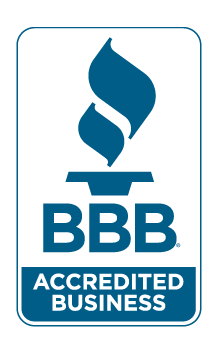Work-life balance is one of those phrases that’s easy to throw around but hard to define, especially for professionals in demanding, people-centered careers like life insurance sales. While the traditional model of work-life balance focuses on keeping professional and personal domains strictly separate, today’s experts suggest that achieving true fulfillment requires a more nuanced approach. For life insurance producers, the unique blend of client-driven schedules, emotional labor, and entrepreneurial flexibility demands something beyond conventional wisdom.
This article explores evolving ideas around work-life balance, introduces a fresh concept—work-life synergy—and discusses how it can transform the way life insurance professionals view and structure their careers.
The Evolution of Work-Life Balance
In its earliest conception, work-life balance was about compartmentalization: working set hours and leaving the rest of your time for personal pursuits. While this time-based approach works well in structured environments, it’s less practical for fields like life insurance sales, where success depends on client availability, irregular hours, and the ability to adapt.
Let’s examine some modern interpretations of work-life balance:
- The Time-Based Approach
This is the classic idea: balancing hours spent working versus hours dedicated to personal life.
Why it’s limited for life insurance producers: Prospecting, client meetings, and follow-ups rarely conform to a strict 9-to-5 schedule.
- The Energy-Based Approach
Focuses on allocating energy to high-priority tasks in both work and personal life.
Why it’s helpful: It acknowledges that productivity isn’t just about hours worked—it’s about how you feel while working.
Why it’s tough to implement: A demanding client schedule can drain emotional reserves, making it hard to protect personal energy levels.
- Work-Life Integration
This approach blends work and personal life seamlessly, such as working from home or bringing family into professional goals.
Why it’s promising: Life insurance producers already enjoy flexibility in structuring their days, making integration natural.
Why it’s risky: It can blur boundaries, leading to burnout if work spills into every corner of life.
- Work-Life Harmony
Rather than balancing work and life as separate entities, harmony focuses on the quality of experiences in both realms.
Why it resonates: Harmony allows for an uneven distribution of effort during high-demand periods, like open enrollment or year-end reviews.
Why it’s not enough: Harmony requires strong self-discipline to prevent work from overshadowing personal fulfillment.
Introducing Work-Life Synergy
It’s time to rethink the entire framework. Instead of balance, which implies trade-offs, or harmony, which requires constant recalibration, consider work-life synergy. This concept views work and personal life as mutually reinforcing. In synergy, success in one area doesn’t detract from the other; it amplifies it.
What is Work-Life Synergy?
Work-life synergy acknowledges that personal and professional domains are interconnected and can fuel one another. For example, skills like empathy and communication developed at work can deepen personal relationships. Similarly, personal interests, like creative hobbies, can inspire innovative approaches to professional challenges.
Work-Life Synergy for Life Insurance Producers
Life insurance sales is more than a career—it’s a mission-driven profession that centers on helping people protect their futures. This intrinsic meaning makes it an ideal candidate for work-life synergy. Here’s how synergy might look in practice:
- Purpose-Driven Relationships:
Instead of seeing client meetings as mere tasks, view them as opportunities to live out personal values like community care and security.
- Flexible Scheduling That Serves Both Worlds:
Use peak energy hours to tackle demanding tasks while reserving personal time for family, fitness, or hobbies.
- Embracing the Emotional Labor:
Rather than seeing emotional client stories as draining, focus on the fulfillment that comes from making a tangible difference in someone’s life.
- Leveraging Your Why:
For many producers, the “why” behind their career—family, financial freedom, or making a difference—is the same “why” that drives their personal goals. Aligning these motivations creates a natural synergy.
Strategies for Cultivating Work-Life Synergy
To build work-life synergy, life insurance producers need practical strategies that integrate personal and professional growth:
- Redefine Productivity:
Success isn’t just about closing sales—it’s about creating meaningful connections. Set goals that focus on impact, not just output.
- Time-Block Life Priorities:
Schedule personal commitments (family dinner, hobbies, exercise) alongside work tasks. Treat them with equal importance.
- Build Emotional Resilience:
The emotional labor of sales can be draining. Use mindfulness techniques, journaling, or therapy to maintain emotional well-being.
- Automate and Delegate:
Free up time for high-value tasks by automating routine processes (like follow-up emails) and delegating non-critical activities (like lead management).
- Find Your Tribe:
Surround yourself with like-minded professionals who share your vision. Peer networks offer support, perspective, and accountability.
Real-World Examples of Synergy in Action
Case Study 1: The Producer Who Puts Family First
A life insurance producer structures their week around their children’s soccer games and family dinners. By aligning work appointments with school hours, they preserve family time while maintaining a thriving career.
Case Study 2: The Mission-Driven Agent
An agent reframes their client meetings as opportunities to educate families about protecting their financial futures. This alignment with their personal values makes their work deeply rewarding, even during busy seasons.
Why Work-Life Synergy Matters
In a profession as dynamic and demanding as life insurance sales, pursuing strict balance can feel like an impossible goal. Synergy, on the other hand, acknowledges that the line between work and life is porous—and that’s okay. By embracing this interconnectedness, life insurance producers can achieve a sense of purpose and fulfillment that enriches every aspect of their lives.
Conclusion
It’s time to stop chasing work-life balance and start creating work-life synergy. For life insurance producers, this approach offers a framework to align personal values with professional goals, turning the challenges of the industry into opportunities for growth and connection.
Ask yourself: How can your personal values fuel your professional success? The answer might just be the key to a more meaningful career and a richer life.





